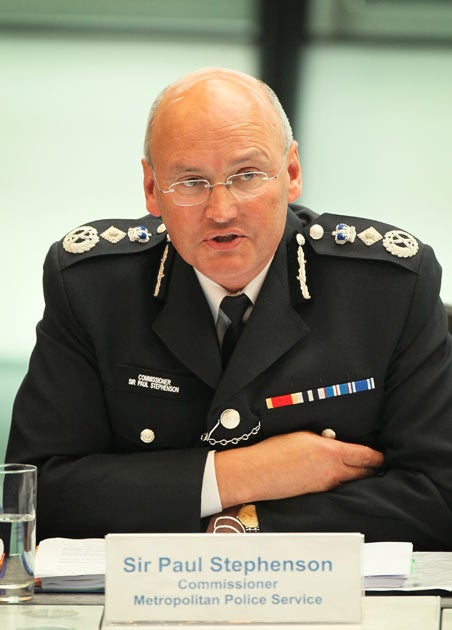England 'could withdraw from Delhi Games'
Team may not go to 2010 Commonwealth Games amid security fears

Security fears may prompt England to pull out of next year's Commonwealth Games in Delhi.
Advisers to the team have raised concerns about the ability of the event's organisers to protect athletes from attacks by Pakistan-based terror groups. Sir Paul Stephenson, the Metropolitan Police Commissioner, visited the Indian capital earlier this year and was said to have returned with "serious concerns" about the planned security arrangements.
According to The Daily Telegraph, senior Whitehall sources have admitted that there is "virtually no chance" that a team will be sent to the event, although a final decision will not be taken until the New Year.
A spokesman for the Foreign Office said last night that the Government had not advised any of the home nations' teams not to participate in the event, but added: "We are aware that the Commonwealth Games Federation had some concerns about preparations for the Games. We continue to work closely with the Indian Authorities who are doing everything they can to ensure a safe and secure Games."
A spokesman for the English Commonwealth Games organising body was also reported as saying that England's participation is under consideration.
Caroline Searle confirmed that the team, which is likely to include stars such as World Champion triple jumper Philips Idowu, Olympic gold-medal winning swimmer Rebecca Adlington and diver Tom Daley, was looking forward to competing but that the security arrangements were being closely monitored.
"We take guidance from the Metropolitan Police [but] can't make a judgement until nearer the time. We have had briefings on security and we will decide when we know that the terror threat is going to be like," she said.
Should the English athletes withdraw, it would call into question the participation of the other home nations as well as other Commonwealth member states such as Australia and Canada who also have troops in Afghanistan. Were a large contingent to pull out en masse it could threaten the staging of October's event. England has sent a team to every one of the previous Games since they were first held in Hamilton, Ontario, in 1930.
Security has been an area of concern for sports teams visiting the Indian subcontinent for some time, particularly following the Mumbai terror attacks in November 2008 in which more than 160 people were killed. England's cricketers flew home from their tour of the country after the strikes, but returned to play two Test matches after their fears were allayed.
Last year seven Sri Lankan cricketers were injured and eight Pakistanis killed when the team came under fire as they travelled to a Test match in the Pakistani city of Lahore. After the shootings the Indian Premier League cricket tournament was moved to South Africa for fear of further attacks.
Stars wary of troubled part of the world
India will doubtless be indignant should the England team pull out of the Commonwealth Games in Delhi but it won't be the first time sporting events have been boycotted amid security concerns.
When terrorists killed more than 160 people in Mumbai in November last year the England cricket team, which was in India for a Test series, was ordered back home. A few days later the decision was taken to fly back to India to play two Tests, a move which went down well with the Indian public.
However, when the English badminton team decided to pull out of the World Championships in Hyderabad there were no second thoughts. The team flew home after being unnerved by reports that the championships were being targetted by Lashkar-e-Taiba, the terror group blamed for last year's attack on the Sri Lankan cricket team, and the Mumbai strikes. Other nations have shown similar concerns about security in India. Among them is Australia, which last year refused to send its Davis Cup team to Chennai and was fined $5,000. Lewis Smith
Join our commenting forum
Join thought-provoking conversations, follow other Independent readers and see their replies
Comments
Bookmark popover
Removed from bookmarks